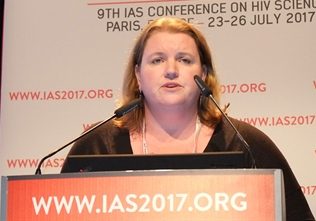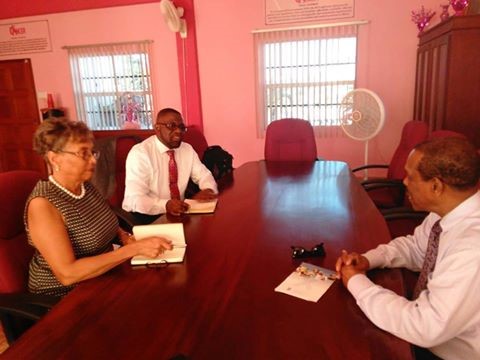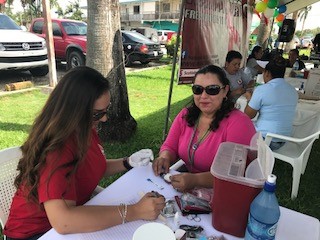PARIS — With more powerful anti-HIV drugs, the triple therapy paradigm might be changing, researchers suggested.
Two studies, one conducted in the U.S. and one in Argentina, showed promising efficacy for different two-drug regimens, investigators told at an oral session here at the International AIDS Society meeting on HIV science.
The three-drug paradigm — highly active antiretroviral therapy or HAART — has been the norm since the later 1990s, commented James Hakim, MD of the University of Zimbabwe, who was not part of the research but who co-moderated the session at which the studies were presented.
“There has been a concern” that using fewer than three drugs would be less effective and more likely to allow the development of drug resistance,” Hakim told MedPage Today.
“But increasingly, with more powerful drugs, the observation has been that you could drop the third drug and still have the same level of efficacy with a reduced risk of mutations that would make the drugs ineffective,” he said.
The simpler regimens would have the advantage of lower cost and a smaller range of possible adverse events, Hakim said. As well, “psychologically and practically” many patients would prefer to take fewer drugs if they could get the same results, he said.
The two studies are preliminary, he said, but “so far — this is still early phase — it seems to be working,” he said.
The Argentine study, dubbed ANDES, is a phase IV study that is directly testing a two-drug regimen with ritonavir-boosted darunavir and lamivudine against a triple-drug regimen that adds tenofovir, according to Pedro Cahn, MD of Fundacion Huesped in Buenos Aires.
The primary endpoint is how well patients on each regimen do after 48 weeks of treatment, but Cahn presented an analysis of a secondary endpoint — efficacy outcomes after 24 weeks.
There’s evidence that a simplified regimen is effective at maintaining control of HIV after the virus has been suppressed on triple-drug therapy, Cahn said, but the ANDES trial enrolled 145 patients who had never been treated.
The study has two phases, Cahn said. In the first phase, ending after 24 weeks of therapy, he and colleagues were interested in what proportion of patients in each arm had plasma HIV RNA of fewer than 400 copies per milliliter.
If at least 75% of those in the experimental arm reached that level, he said, the trial would proceed to the next 24 weeks, in which the endpoint would be the proportion achieving undetectable HIV, defined as fewer than 50 copies of HIV RNA per milliliter.
The study was designed to demonstrate non-inferiority at both endpoints, Cahn said.
At 24 weeks, he reported, 95% of those on two drugs and 97% of those on three had reached or exceeded the 400-copy benchmark and the difference showed the two regimens were non-inferior to each other.
In the two-drug arm, 10 patients reported 11 adverse events that were thought to be possibly drug-related, while in the triple-drug arm 16 patients reported 21 events. There were eight serious adverse events, but none was related to the medications, he said.
The American study, ACTG A5353, had a different design: it was a single-arm study of dolutegravir (Tivicay) and lamivudine in 120 treatment-naïve patients, according to Babafemi Taiwo, MD, of Northwestern University Feinberg School of Medicine in Chicago.
The goal was to estimate virologic success of the regimen after 24 weeks of therapy, defined as a plasma viral load of fewer than 50 copies of HIV RNA per milliliter, Taiwo reported.
The study protocol defined virologic failure as a confirmed viral load of more than 400 copies per milliliter at weeks 16 or 20 of therapy or more than 200 copies at or after week 24. Patients were followed for 52 weeks.
The bottom line, Taiwo said, was that 108 (or 90%) of the patients reached the efficacy endpoint, with only three meeting the criteria for virologic failure. The data showed those three patients were not correctly following the drug regimen, he said.







